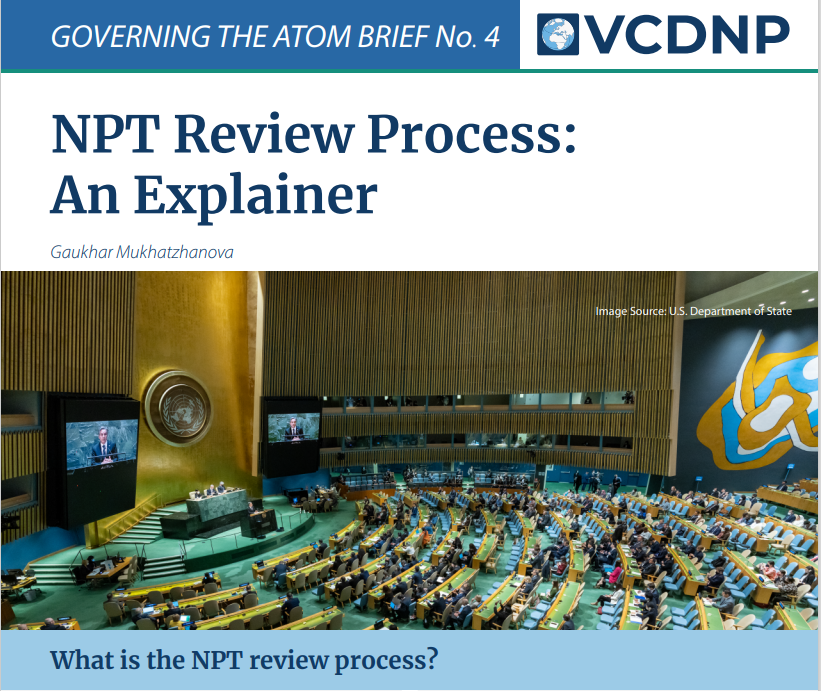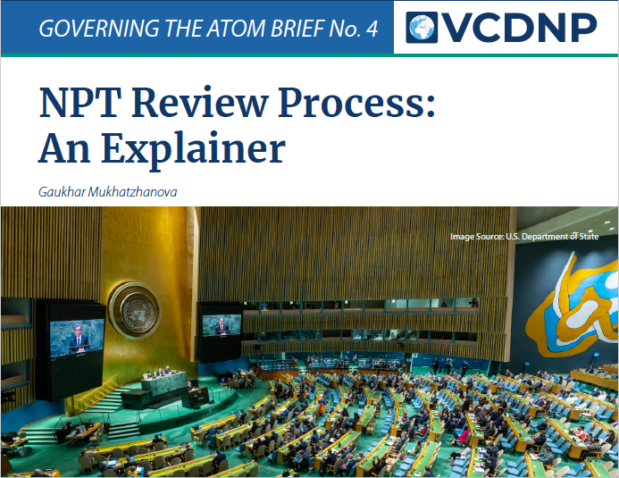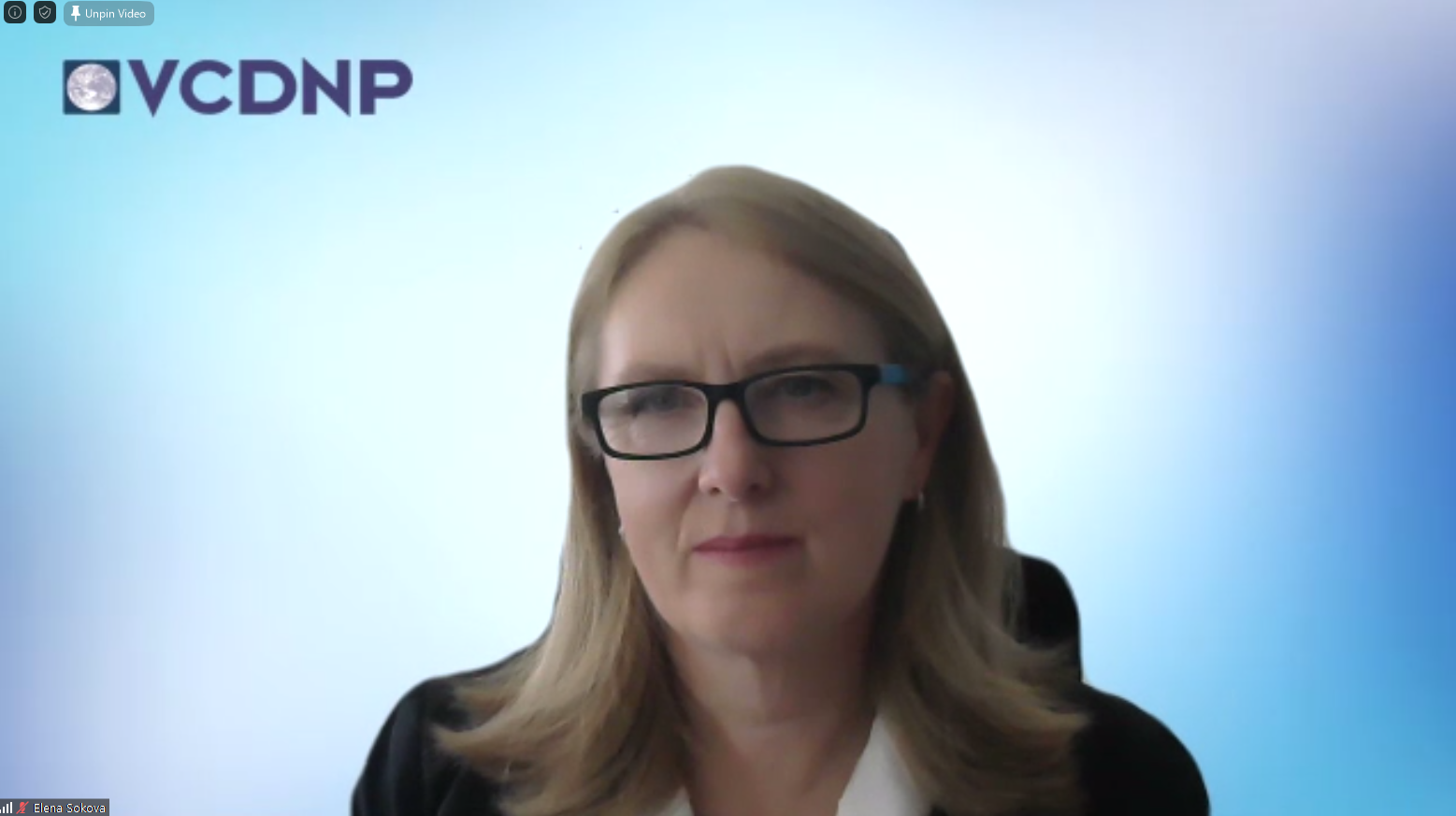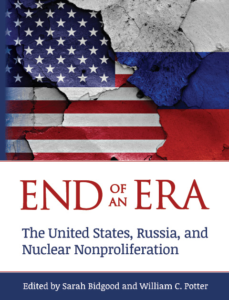

On 24 July 2023, States Parties to the Treaty on the Non-Proliferation of Nuclear Weapons (NPT) are convening in Vienna for a week-long meeting of the Working Group on further strengthening the review process. This meeting will be followed by the first session of the Preparatory Committee (PrepCom) for the 11th NPT Review Conference (RevCon).
What is the NPT review process? What do the PrepComs and RevCons do? Who chairs these meetings and how are the chairs selected? How do States Parties make decisions? How do they negotiate outcome documents? To help diplomats and observers with little or no experience with the NPT, the fourth brief in the VCDNP’s “Governing the Atom” series answers these and other questions about the NPT review process.
The “Governing the Atom” brief series presents easily digestible and factual information to experts and government representatives on critical nuclear governance issues and aids States in their decision-making on critical issues related to working with international organisations and regimes, including the Treaty on Non-Proliferation of Nuclear Weapons, the International Atomic Energy Agency, the Comprehensive Nuclear‑Test‑Ban Treaty Organization, as well as on arms control and disarmament, nuclear export controls, nuclear security, and other relevant topics.


